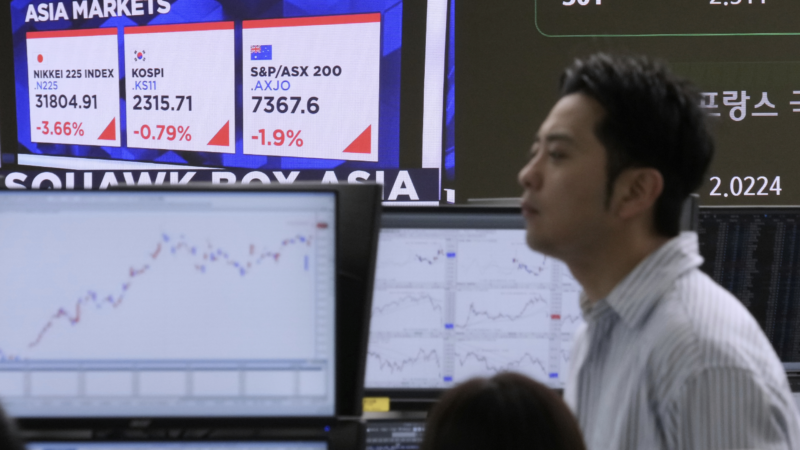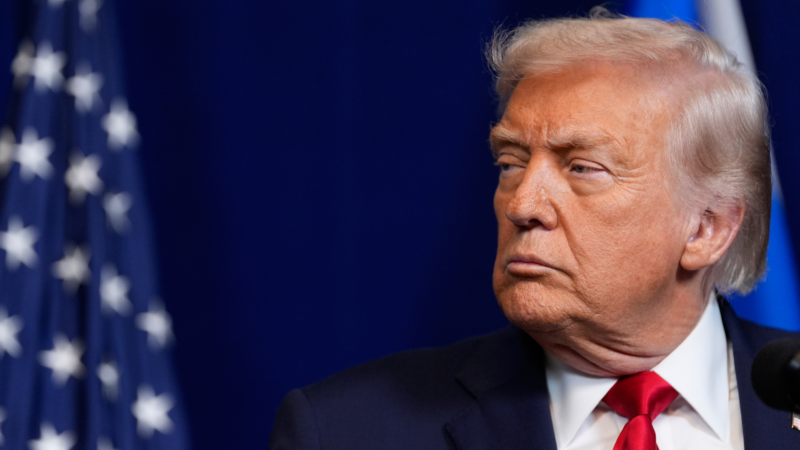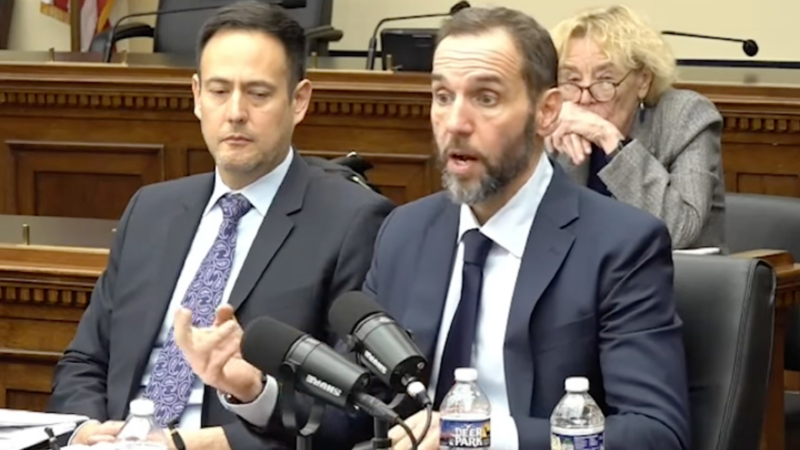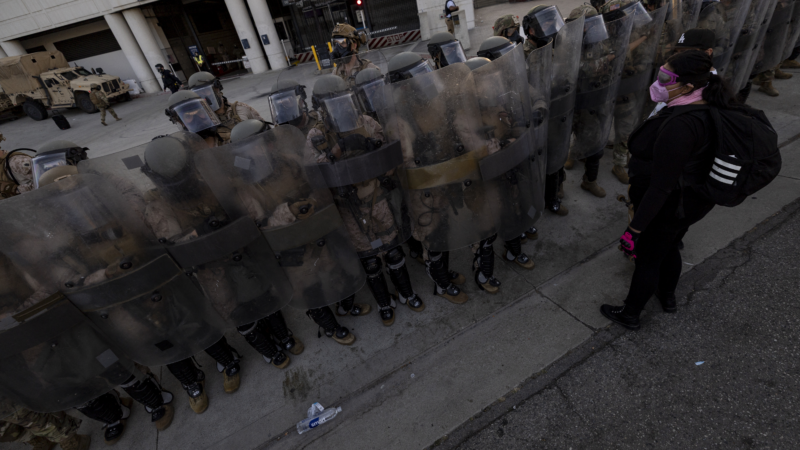Asian shares deepen losses, with Nikkei down 5%, as latest US tariffs take effect
BANGKOK — Japan’s Nikkei 225 dipped more than 5% and other Asian shares also sank Wednesday as the latest set of U.S. tariffs, including a massive 104% levy on Chinese imports, took effect.
Markets have been wobbly for days, with investors flummoxed over what to make of President Donald Trump’s trade war.
On Tuesday, the S&P 500 dropped 1.6% after wiping out an early gain of 4.1%. That took it nearly 19% below its record set in February. The Dow Jones Industrial Average dropped 0.8%, while the Nasdaq composite lost 2.1%.
Stocks had rallied globally on Tuesday, with indexes up 6% in Tokyo, 2.5% in Paris and 1.6% in Shanghai. Any optimism or buying enthusiasm appeared to have dissipated by the time the sharply higher tariffs became reality.
The Nikkei 225 was down 4.7% at 32,475.57 as of mid-afternoon Tokyo time.
In Hong Kong, the Hang Seng lost 1.8% to 19,769.24, while the Shanghai Composite index edged just 4 points lower, to 3,141.46.
South Korea’s Kospi lost 1.9% to 2,290.87, while the S&P/ASX 200 in Australia declined 1.8% to 7,374.80. Shares in New Zealand also fell.
Analysts have been warning to expect more swings up and down in markets given the uncertainty over how long Trump will keep the stiff tariffs on imports, which will raise prices for U.S. shoppers and slow the economy. If they last a long time, economists and investors expect them to cause a recession. If Trump lowers them through negotiations relatively quickly, the worst-case scenario might be avoided.
Hope still remains on Wall Street that negotiations may be possible, which helped drive the morning’s rally. Trump said Tuesday that a conversation with South Korea’s acting president helped them reach the “confines and probability of a great DEAL for both countries.”
On Tuesday, Japanese stocks led global markets higher after the country’s prime minister, Shigeru Ishiba, appointed his trade negotiator for talks with the United States following a conversation with Trump.
China said it will “fight to the end” and warned of countermeasures after Trump threatened on Monday to raise his tariffs even further on the world’s second-largest economy.
White House press secretary Karoline Leavitt said Tuesday that Trump’s threats of even higher tariffs on China will become reality after midnight, when imports from China will be taxed at a stunning 104% rate.
That would coincide with Trump’s latest set of broad tariffs, which are scheduled to kick in at 12:01 a.m. And Trump has made clear that he does not intend to have any exemptions or exclusions, according to the top U.S. trade negotiator, Jamieson Greer.
The U.S. trade representative also said in testimony before a Senate committee that roughly 50 countries have already been in contact, and he’s told them: “If you have a better idea to achieve reciprocity and to get our trade deficit down, we want to talk with you, we want to negotiate with you.”
Trump’s trade war is an attack on the globalization that’s shaped the world’s economy and helped bring down prices for products on store shelves but also caused manufacturing jobs to leave for other countries. Trump has said he wants to narrow trade deficits, which measure how much more the United States imports from other countries than it sends to them as exports.
In other dealings early Wednesday, U.S. benchmark crude oil fell $2.73 to $56.85 per barrel. Brent crude, the international standard, shed $2.62 to $60.20 per barrel.
The U.S. dollar fell to 145.21 Japanese yen from 146.29 yen. The euro rose to $1.1049 from $1.0995.
The price of gold rose $35 to $3,025 an ounce.
Zohran Mamdani sworn in as New York City mayor, capping historic rise
Mayor Zohran Mamdani took the oath of office in New York City after midnight Thursday. The city's first Muslim mayor, a member of the Democratic Socialists of America, has promised to focus on affordability and fairness.
Rising from the ashes, a symbol of hope at the Rose Parade
Survivors of the Eaton and Palisades Fires find healing and community working on a Rose Parade float to honor the lives and communities lost in last year's wildfires.
The history behind the NYC subway station chosen for Mamdani’s swearing-in
The city shut down the station in 1945 on New Year's Eve. Eighty years later, it's a symbolic venue choice for the incoming mayor's private swearing-in ceremony.
U.S. military strikes 5 more alleged drug boats, killing 8
The U.S. military says it struck five alleged drug-smuggling boats over two days. The attacks killed eight people, while others jumped overboard and may have survived. U.S. Southern Command did not reveal where the attacks occurred.
Capitol riot ‘does not happen’ without Trump, Jack Smith told Congress
Former special counsel Jack Smith also described President Trump as the "most culpable and most responsible person" in the criminal conspiracy to overturn the 2020 election results, according to a transcript of Smith's closed-door interview with the House Judiciary Committee.
Trump will drop push for National Guard deployments in Chicago, LA and Portland, Ore.
Courts blocked troops from deploying in Chicago and Portland, Ore., and the Los Angeles deployment effectively ended after a judge blocked it earlier this month.







